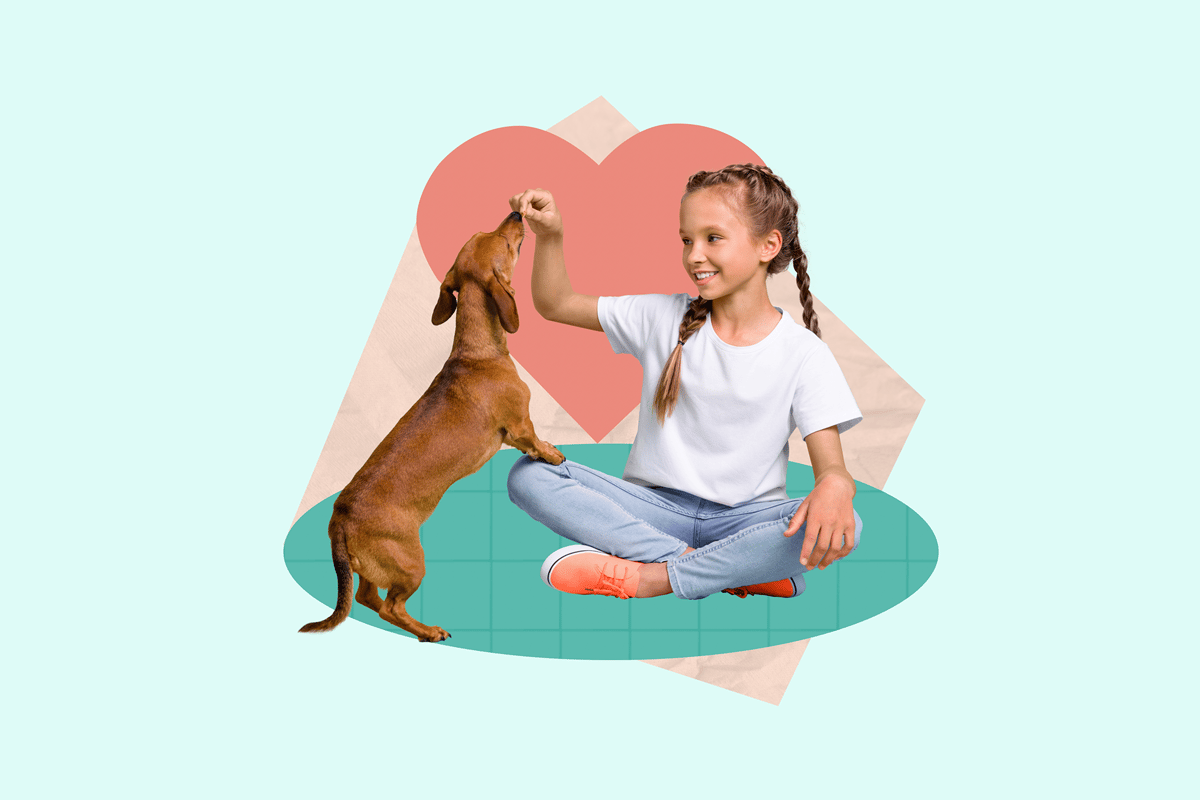Your daily dose of doggy goodness!
Every day, we celebrate our shared love of dogs and hopefully brighten your day. Enjoy!
Dog of the Day:
Dory!
Meme of the day: Rude!
Only 4% of pet owners are thinking ahead
86% of pets aren’t insured. That means most pet parents could be on the hook for the sky-high vet bills that often come with unforeseen accidents and illnesses.
While it's impossible to pinpoint an exact percentage, it's likely your pet will get sick or injured during their lifetime. Pet insurance can help offset these unexpected costs. Many plans even let you choose a deductible and reimbursement level, which could allow you to arrive at a monthly premium you can afford. Check out Money’s list of their top pet insurance picks and start protecting your furry buddy today for as low as $10/month.
Aging and Anxiety: What to Know
A dog's golden years can be a time of joy and companionship, but for some, they are also marked by an increase in anxiety. This can be confusing and heartbreaking for pet parents who have always known their dog to be a confident and happy-go-lucky companion. As dogs age, a combination of physiological, cognitive, and environmental factors can contribute to heightened anxiety. Understanding these changes is the first step toward providing the support and comfort our beloved companions need in their senior years.

The Science Behind Senior Dog Anxiety
As with humans, a dog's body and brain undergo significant changes as they age. Here are some of the key reasons why a dog's anxiety may worsen with time:
Decline in Sensory Function: One of the most common and impactful changes is the loss of hearing and vision. A dog that can no longer see or hear its surroundings as clearly may feel more vulnerable and disoriented. Sudden movements or sounds that were once predictable can now seem startling and threatening, leading to an increase in startle responses and generalized anxiety. A dog with failing vision may also be more hesitant to navigate familiar spaces, particularly in the dark, leading to what can look like separation anxiety or a reluctance to be alone.
Cognitive Decline (Canine Cognitive Dysfunction): Often referred to as "doggy dementia," Canine Cognitive Dysfunction (CCD) is a progressive neurodegenerative disease similar to Alzheimer's in humans. CCD can cause changes in a dog's memory, learning, and awareness. A dog with CCD may become disoriented in its own home, forget familiar routines, or struggle to recognize its family members. This confusion and unpredictability can be incredibly stressful, leading to increased vocalization, restlessness, and anxiety, especially at night.
Physical Pain and Discomfort: Arthritis, hip dysplasia, and other age-related ailments can cause chronic pain.This pain can make a dog less tolerant of being touched or handled, leading to irritability and fear-based aggression. The inability to move freely or find a comfortable position can also be a source of constant stress and anxiety. A dog in pain may become less social, withdraw from activities it once enjoyed, and show signs of anxiety when faced with situations that require physical exertion.
Changes in Routine and Environment: Senior dogs, like senior people, often thrive on routine. Changes in the household, such as a new pet, the departure of a family member, or even a change in the daily walking schedule, can be highly unsettling. A dog that is already dealing with sensory or cognitive decline may find these changes particularly difficult to process, leading to a breakdown in its coping mechanisms and a spike in anxiety.
How to Help Your Aging Dog
While it can be heartbreaking to see your dog struggle, there are many things you can do to help ease their anxiety and improve their quality of life.
Consult with Your Veterinarian: The first and most important step is to schedule a check-up with your vet. They can rule out underlying medical conditions, such as chronic pain or thyroid issues, that may be contributing to the anxiety. They may also be able to prescribe medications or supplements specifically designed to manage anxiety in senior dogs.
Create a Safe and Predictable Environment: Keep your dog's living space consistent and free of clutter. Use nightlights to help a dog with failing vision navigate in the dark. Provide a comfortable, easy-to-access bed and make sure water and food bowls are within easy reach. Sticking to a consistent daily routine can also help reduce uncertainty and provide a sense of security.
Adapt Your Activities: While your dog may not be able to go on long hikes anymore, it's still important to provide mental and physical stimulation. Try shorter, more frequent walks, or switch to puzzle toys and scent-work games that don't require as much physical exertion.
Provide Comfort and Reassurance: Your presence and calm demeanor can be a powerful antidote to your dog's anxiety. Avoid scolding or punishing your dog for anxious behaviors, as this will only worsen their fear. Instead, offer gentle praise and comfort when they are calm.
Consider Alternative Therapies: Many pet parents have found success with alternative therapies, such as calming supplements, pheromone diffusers, or even a weighted anxiety vest. Consult with your vet to see if these options are right for your dog.
The Unconditional Bond
Seeing your once-fearless dog become anxious and withdrawn can be a difficult experience. But remember, the unconditional love and support you provide are more important than ever. By understanding the reasons behind their anxiety and adapting your care to their changing needs, you can ensure that their golden years are as comfortable, peaceful, and joyful as possible. It is a testament to the special bond you share, one that only deepens with time, patience, and compassion.
Fact-based news without bias awaits. Make 1440 your choice today.
Overwhelmed by biased news? Cut through the clutter and get straight facts with your daily 1440 digest. From politics to sports, join millions who start their day informed.
Dog Food and Supplement Recalls
Here are the recent recalls and advisories:
Savage Pet - Cat Food Chicken for potential bird flu exposure
Wild Coast Raw - Frozen Boneless Free Range Chicken Formula raw pet food for cats for possible bird flu exposure.
Blue Ridge Beef - Natural Mix for potential salmonella.
The Smile Section
Family Photo of the Day:
Mia!

We want to feature your pup!
We want to share your pup with our pack. Email us your favorite doggy pic or video with your pup’s name, and we'll try to feature it as a family photo in one of our upcoming newsletters or on our Facebook page.
Interested in reaching our audience?
Like newsletters?
Here are some newsletters our readers also enjoy:
Share our newsletter with your friends!
We’ll donate on your behalf!
🐶 Refer 10 people: We will donate a box of treats to an animal rescue 🐶
🐶 Refer 50 people: We will donate a bag of dog food to an animal rescue 🐶
🛏 Refer 100 people: We will donate a dog bed to an animal rescue 🛏
{{rp_personalized_text}}







